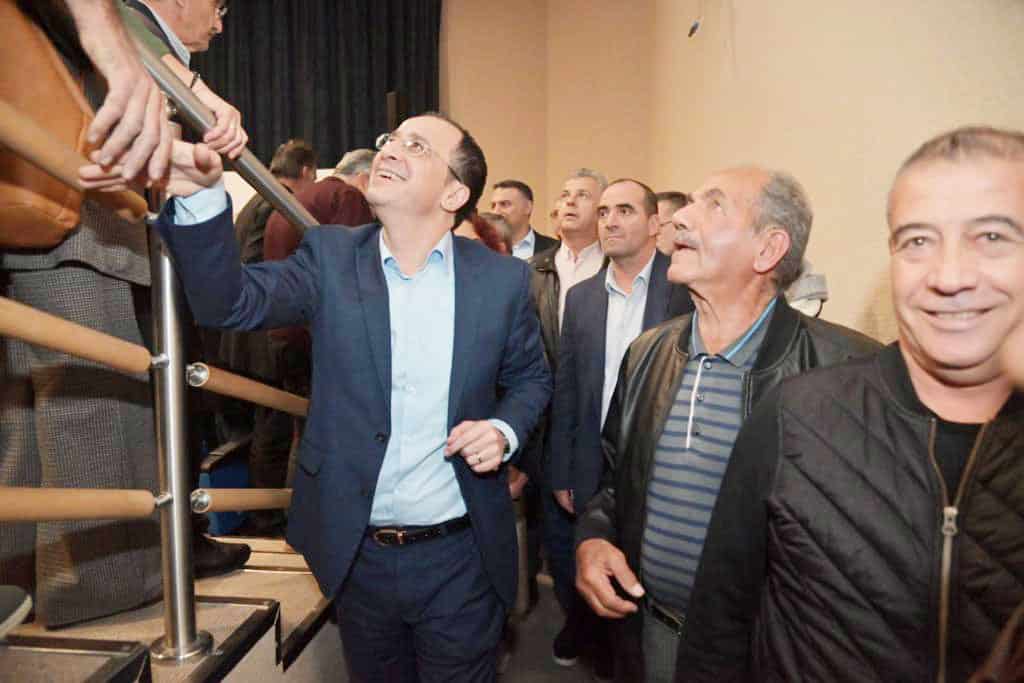Many are being left to guess Nikos Christodoulides’ stance on the Cyprus issue
A friend of mine with an interest in the Cyprob asked what I thought of the three main candidates for president of the Republic of Cyprus (RoC), which hitherto I confess I treated like the proverbial elephant in the room.
As election day on February 5, 2023 approaches I have no choice but to dedicate a column to the race even though previously I thought of the three main contenders as being chips off the old block.
I didn’t think I knew much about any of them except that all three were close associates of President Nicos Anastasiades who in a series of valedictory speeches blames Turkish intransigence for his failure to solve the Cyprob at Crans-Montana in 2017.
According to some pundits those negotiations were the last chance for a federal solution but I don’t agree at all with such pessimism, as there is no such thing as a last chance for solving political problems. A federal solution to the Cyprob is the only show in town that is sufficiently flexible and fair in terms of accommodating all stakeholders – primarily the Cypriots, but also Turkey, Greece, UK and the EU.
I don’t actually know first-hand what happened at the last ill-tempered dinner at Crans-Montana but I have to say I find it difficult to believe that the Turkish Cypriot leader, Mustafa Akinci, was intransigent – he is not that sort of politician. The truth will out in the end but given Akinci’s high credibility across the divide I believe he genuinely tried to get a federal deal at Crans-Montana in 2017.
That is good evidence that for an important segment of Turkish Cypriot society a federal outcome is an end in itself rather than a means to an end. A federal Cyprus is tenacious and deeply embedded in Turkish Cypriot political culture.
So, although the choice Greek Cypriots face next Sunday is not directly about who is best able to solve the Cyprob directly, it is still about who is best able to navigate the emerging geopolitical horizon in the context of a federal solution to the Cyprob. Basically, how to pick up the pieces once the two-state policy of the present Turkish Cypriot leadership founders – like Catalonia and Scotland it is a fact of international relations that secession without the consent of the state from which secession is sought, usually founders.
So given the tenacity of a federal solution its implications for the choice Greek Cypriots have to make next Sunday is whether they will choose the most federation-friendly candidate or the most federation-averse.
Andreas Mavroyiannis is the most federation-friendly who would have done a deal at Crans-Montana if he were in charge; he wants to continue the process where it left off. He strikes one as upright, serious and reliable. He would be my choice of the three main contenders for president of RoC.
He is the oldest of the candidates having been born on July 20, 1956. If he is elected the electorate would move smoothly to the next generation from Anastasiades who was born on September 27, 1946 – ten years being the optimal generational change for the office of president. Like George Vassiliou 1988-1993 – probably the best president of RoC – Mavroyiannis is supported by but not beholden to the communist party of Cyprus, Akel.
In Cypriot politics there is a huge difference between Akel fielding its own candidate as president and supporting an independent and playing second fiddle if he wins. Archbishop Makarios, Spyros Kyprianou, George Vassiliou and Tassos Papadopoulos were all supported by Akel at one time or another.
Averof Neophytou was born on July 31, 1961. If elected, he too would be federation-friendly and very pro-western. As leader of the majority party of the right – the Democratic Rally (Disy) – he was entitled to expect loyalty from all members of his party and is fully justified feeling betrayed by Nikos Christodoulides’ decision to run despite not being party leader.
The last time Disy fielded two candidates was in 2003 when the 83-year old Glafcos Clerides decided to run for a limited third term to finalise a solution to the Cyprob that forced his loyal Attorney-General, Alecos Markides, to enter the race against both Clerides and Tassos Papadopoulos. His entry split the vote on the right and Papadopoulos won more than 50 per cent in the first round.
Nikos Christodoulides was born on December 6, 1973. If he gets elected the electorate will have skipped two age groups and passed the torch to a new generation of Greek Cypriots who have never known an undivided Cyprus. He is ahead in the opinion polls but under 50 per cent so if the contest goes to a second round the race would be too close to call.
His policy on the Cyprob is best exemplified by a quote from Winston Churchill which to be fair to Christodoulides, I shall quote in full. Churchill characterised the role Russia might play in World War II as being “a riddle wrapped in a mystery inside an enigma, but perhaps there is a key. That key is Russian national interest.”
It may be that Christodoulides is vague about his policy on the Cyprob because he has the national interest of Greek Cypriots in mind and does not believe that a federal solution is in the Greek Cypriot national interest.
However, for those in Cyprus who believe in a federal solution because it is fair to all sides, his policy would not be in the national interest of the whole of Cyprus.
Alper Ali Riza is a king’s counsel in the UK and a retired part-time judge







Click here to change your cookie preferences